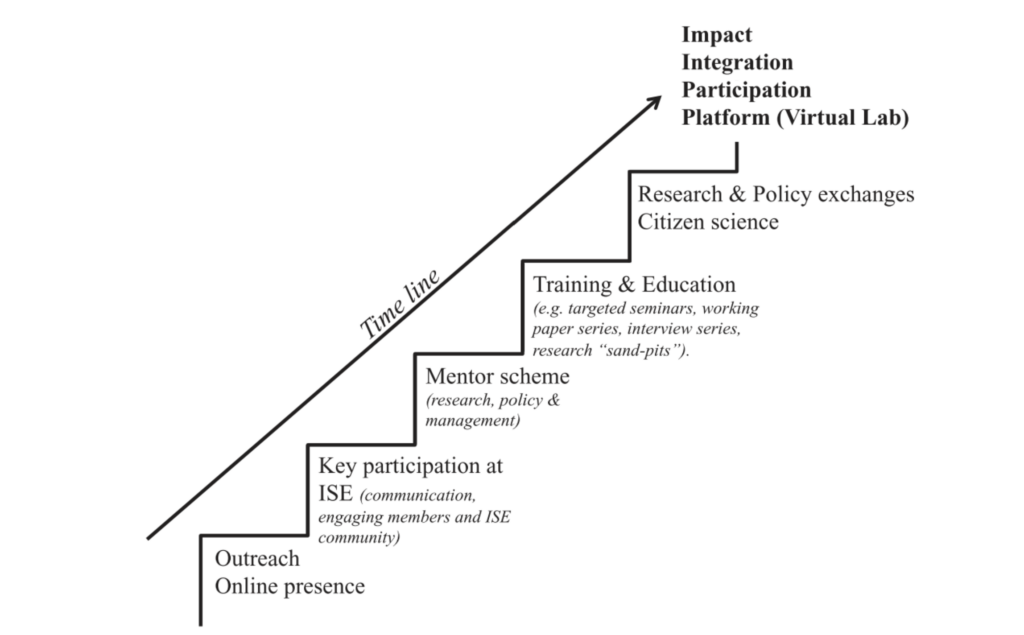Origin
The idea of EcoENet was conceived in 2014, at the 10th International Symposium of Ecohydraulics in Trondheim (Norway), with the idea to support early career researchers (ECRs) as the most vulnerable group in the scientific community, yet the ones who play a critical role in the future management of freshwater ecosystems. The Network was consolidated in 2016, at the 11th International Symposium of Ecohydraulics in Melbourne (Australia), with the first EcoENet workshop.
ECRs in Ecohydraulics need to focus their careers in a way that crosses traditional disciplinary boundaries to ensure the true integration of ecological, physical and social values to inform sustainable water management. This challenge can only be overcome by developing Ecohydraulics as an integrative field of research and supporting the new generations of freshwater scientists.
Aim
ECoENet aims at developing a platform for Ecohydraulics-related research training, seeking to both strengthen the identity and integration of its disciplines and to mitigate some of the key barriers facing early career researchers.
ECoENet acts as a sounding board for calls, events and news on Ecohydraulics-related topics. With this website and our social platforms, we offer a virtual space to:
- facilitate the engagement among early career researchers and the broader Ecohydraulics community
- stimulate the communication and dissemination of Ecohydraulic research
- promote events, calls, prizes, opportunities for ECRs
- organise and support targeted events (e.g. workshops) and strategic actions that fulfill its mission.
Strategy
ECoENet will develop this platform with a focus on four key areas including Online Presence (web and social media), by reaching out to different groups linked to Ecohydraulics, by having a key participation at the International Symposium of Ecohydraulics and other relevant conferences, and by engaging Early Career members and established academics with a mentoring role within the network.

The development of the ECoENet’s platform will be long term through a series of steps, ordered by a timeline of implementation from short-term to longer-term actions, as shown below (Figure below from Wilkes et al 2016).

Activities
Besides our main focus areas, as part of an ECoENet workshop at ISE 2018, in Tokyo, we identified and prioritised several Strategic Actions that can help growing our Network and are aligned with ECoENet’s scope and mission.
Such activities can be from small to big projects, but most importantly should be led by one or a few members with the enthusiasm and will to see it through. Some examples of past and ongoing ECoENet Strategic Actions are as follows:
- The creation of an Ecohydraulics glossary
- The identification of Ecohydraulics high education courses
- The development of a mentor-ECR program
- The implementation of local ECoENet groups, globally
If you would like to join one of them, or take the lead on a new one that you think can help ECRs in Ecohydraulics, do not hesitate to contact us!